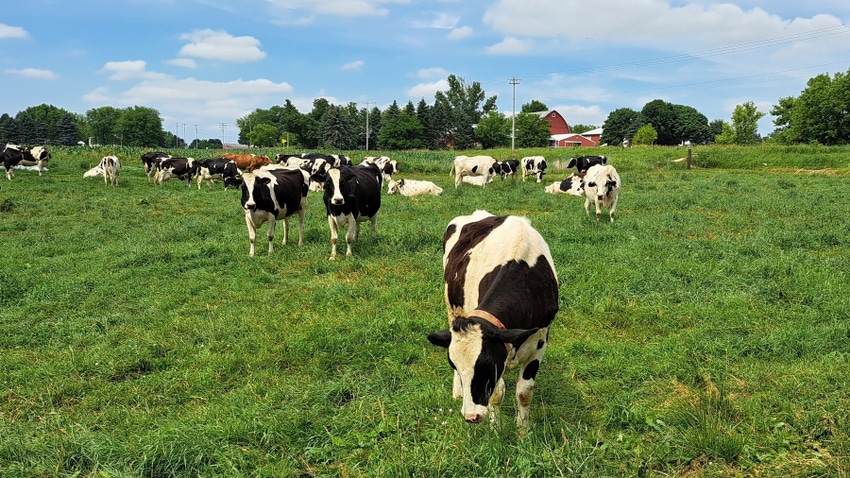
Heifers are the future of a dairy farm, so it’s important to raise them — or have someone else raise them — so they grow into healthy, high-producing cows.
As dairy farmers increase herd sizes, they need to decide if they will continue raising their own heifers or find a custom heifer grower to do it for them, says Matt Lippert, University of Wisconsin-Madison Extension dairy agent for Wood and Clark counties.
“Many dairy producers who expand their herds find advantages in specializing in and focusing on the milking cows. They aren’t set up to milk more cows and raise more heifers,” Lippert explains. “In addition to needing more housing and labor to handle the extra animals, they also may not have enough feed.”
Turning to a custom heifer raiser allows dairy farmers to focus on managing their milking herd while entrusting the care of young stock to someone else.
“Not many 60-cow dairy farms use heifer growers. But it is a pretty common practice among farmers who have 200 cows and up,” Lippert says. “It depends on how much housing, feed and labor you have.”
On some dairy farms, pre-fresh heifers are intermingled with dry cows, Lippert says.
“Heifers are timid, and they don’t compete as well with dry cows,” he says. “It is best if you could have a separate group for pre-fresh heifers. If that isn’t possible, compensate with plenty of bunk space, access to water and ensure the animals are not crowded.”
How do you decide if you should raise your own heifers or hire a heifer grower?
“If you have the facilities and they are efficient, you have the labor or you can hire it, and you have the feed, then you should consider raising your own heifers,” Lippert explains. “If you are tight on space, labor and feed, then it is probably a better idea to hire a heifer grower.”
Streamline facilities for heifers
Lippert says dairy farmers who sell their cows are good candidates to raise heifers for other farmers if they like taking care of heifers, and have the feed and efficient facilities.
“Some conversions and adaptations of old milking facilities are labor inefficient, poorly ventilated and a challenge to keep animals clean and healthy. If they have heifers in pens that are not efficient that take all day to clean out, and they don’t have enough feed, then they probably shouldn’t custom-raise heifers,” Lippert says. “It’s important that the facilities are as streamlined as possible for raising heifers.
“When you specialize in raising replacements, you need to up your game; if previously you let heifer management and facilities be good enough, as a heifer grower, you need to rise to a standard where your customers are happy with the replacements you develop and the job that you are doing.”
One consideration when raising heifers is they don’t require top-quality feed. This can be an advantage or a disadvantage.
“Not all feed turns out as we hope,” Lippert says. “As a diversified dairy farmer also raising heifers, more mature forages can be a good fit allocating that inventory to heifers. You may change your cutting schedule and types of corn hybrids when you convert from milking to dairy replacements.
“Most likely you will need to weigh animals to gauge your progress and to report to your customers. Adequate weight, moderate body condition, well-grown animals of adequate height and lack of variability are all things customers’ desire.
“Modern genetics has become very uniform. The heifers you develop should be as well. If they are all bred between 13 and 15 months to calve at 2 years of age or a little under, you are setting up your customers for success.”
Read more about:
HeifersAbout the Author(s)
You May Also Like






